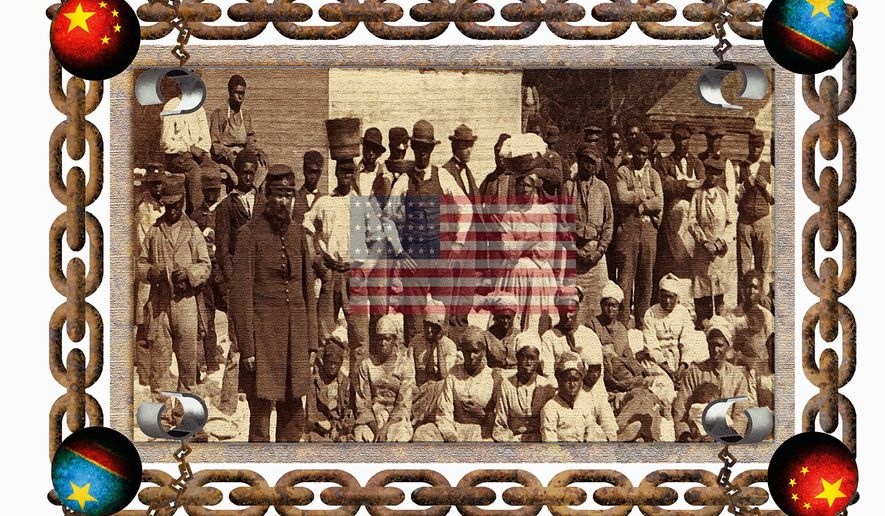OPINION:
It is good that the United States is celebrating the outcome of the Civil War again, after effectively trading President Lincoln’s holiday for the Rev. Martin Luther King’s holiday. The new Juneteenth holiday will serve as an annual reminder of the liberation of the slaves owned by Democrats by Republican soldiers.
That’s good. There are other features of the new holiday worth noting.
It’s a bit odd for the federal government to celebrate the Civil War, which is the single greatest public policy failure in the history of the United States. Because of the hagiography surrounding President Lincoln, we assiduously avoid noting that every other nation in the Western Hemisphere managed to outlaw slavery or otherwise free their enslaved people during the 19th century without resorting to destructive war.
The Civil War, while fought heroically and well, was an avoidable mistake, for which elected officials bear full responsibility.
It is also odd that the very same cohort who held slaves in 1861 and led us into war — prosperous Democrats — are the most active supporters of devaluing lives nowadays through the mechanism of abortion. It is possible that valuing one’s own life more than others is a feature, rather than a bug, of the underlying philosophy.
Similarly, then, as now, those eager to preserve lives other than their own tended to be flinty, religious Republicans who then, as now, fought to defend the value and dignity of individuals.
Moreover, whatever one thinks about the holiday, its creation may not set a particularly good precedent. The only other specific historical date we celebrate in the United States is the Fourth of July, which doesn’t really celebrate a particular day, but rather commemorates the freedom of the United States from the indifferent and ineffective rule of the Hanoverian dynasty.
If we were going to pick a single date to celebrate, is June 19, 1865, which is notable because it is the date of a general order given by a military commander to the people of Texas, the day we would choose?
How about April 19, 1775? Oct. 19, 1781? June 21, 1788? April 9, 1865? June 6, 1944? Aug. 14, 1945? July 20, 1969?
A young friend of mine asked whether the suffragettes who secured the right to vote for women will get their own national holiday. It is a legitimate question that other groups soon will be asking.
That leads to the question of how many holidays will federal employees eventually be given. Who cares? Concern over the judicious use of federal funds is always warranted, but does anyone on any side of the political divide really want an industrious federal bureaucracy? Think carefully before you answer.
With respect to federal holidays, one additional thought bears notice. In the long and yet to be resolved contest between King and Malcolm Little, better known as Malcolm X, it’s possible we may need to revisit some assumptions about who might win. King believed that race is incidental; Malcolm X believed that race is essential. Unfortunately, Malcolm X seems to be getting the better of the national debate, as the core claim of systemic racism, now ascendant in many quarters, is that race defines all or pretty much all of the American experiment and experience.
Finally, the very same people who are most insistent that we focus on the slavery that ceased more than 150 years ago in our own nation seem completely unconcerned with the slavery that exists elsewhere on the planet right now. Companies and individuals that buy items such as solar panels and batteries for electric vehicles from regimes in communist China or the Democratic Republic of the Congo are helping to sponsor and fund the slavery, genocide, torture and negation of human rights that occur every day in those places.
Even the human trafficking that occurs each day in the United States is of little consequence to most Americans.
While we celebrate June 19th, we might want to think about that, too.
• Michael McKenna, a columnist for The Washington Times, is the president of MWR Strategies. He was most recently a deputy assistant to President Trump and deputy director of the Office of Legislative Affairs at the White House.




Please read our comment policy before commenting.